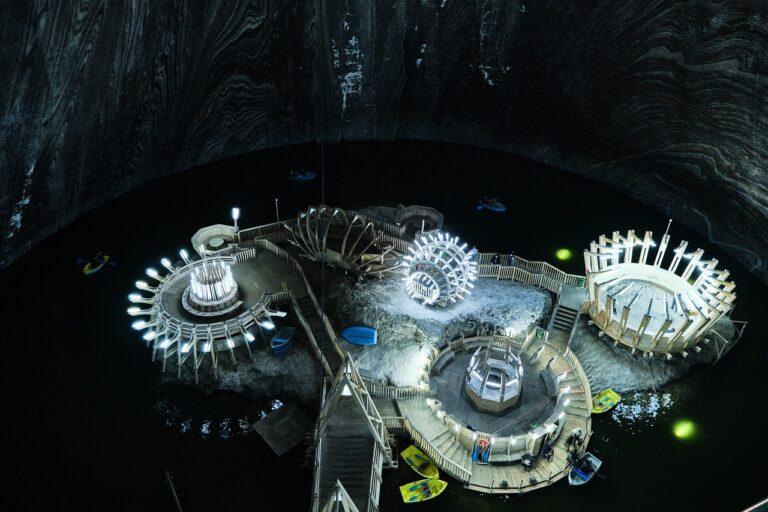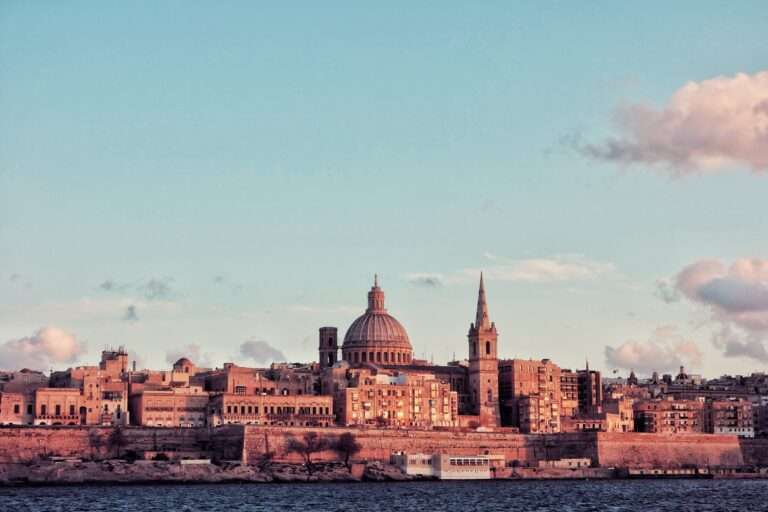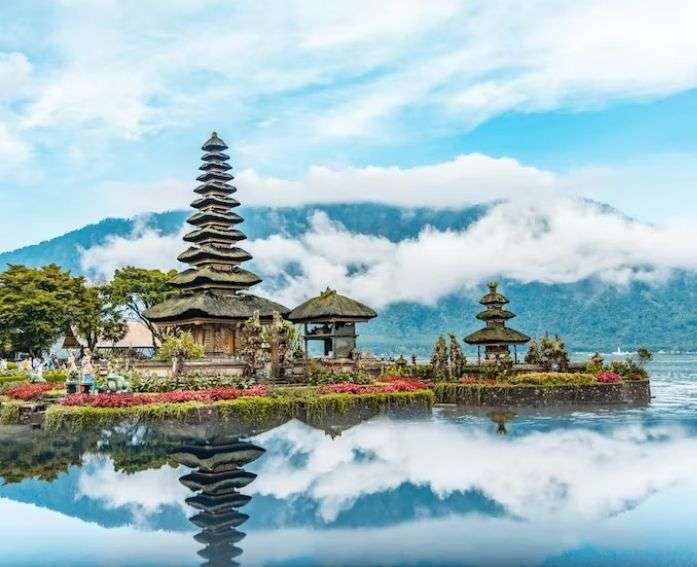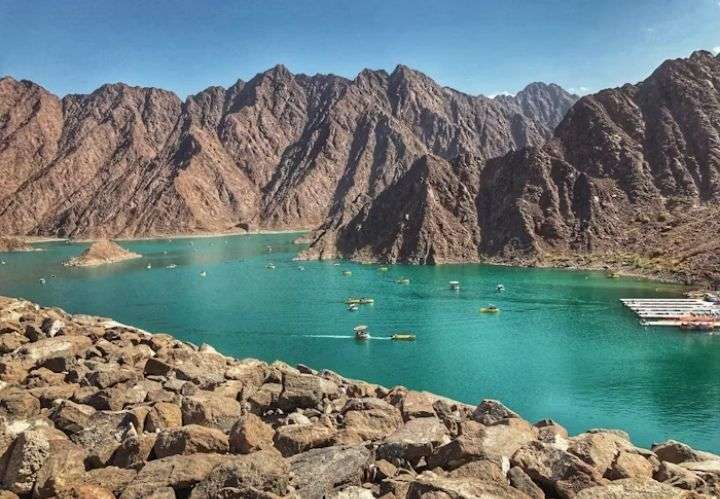Hue, situated in central Vietnam, is a city that effortlessly blends a rich historical shade with a vibrant cultural ambiance. As the former imperial capital of Vietnam, Hue holds a significant place in the country’s history. Hue Vietnam offering visitors a glimpse into its glorious past and a taste of its modern charm.
https://youtu.be/Tv2E2gJNMpQ?si=KX5Hvu8ZxZHmfbGr
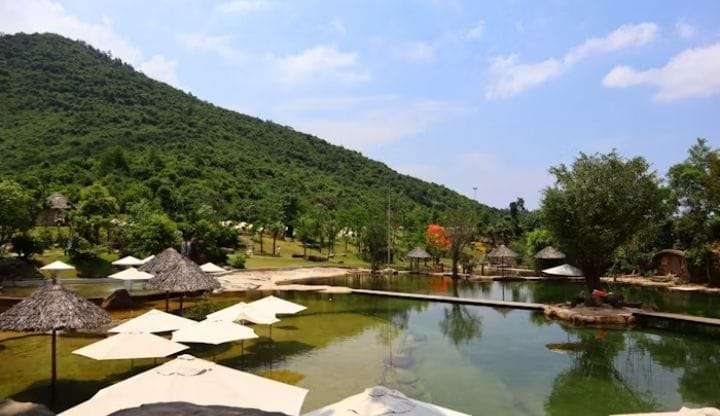
Contents
Historical Significance:
Founded as the capital of the Nguyen Dynasty in 1802, Hue Vietnam served as the political, cultural, and religious center of Vietnam for nearly 143 years. The city is adorned with historical treasures, including the Imperial City – a UNESCO World Heritage Site. Enclosed by massive stone walls and surrounded by a protective moat, the Imperial City is a sprawling complex featuring palaces, temples, gates, and pavilions that showcase the grandeur of Vietnamese imperial architecture.
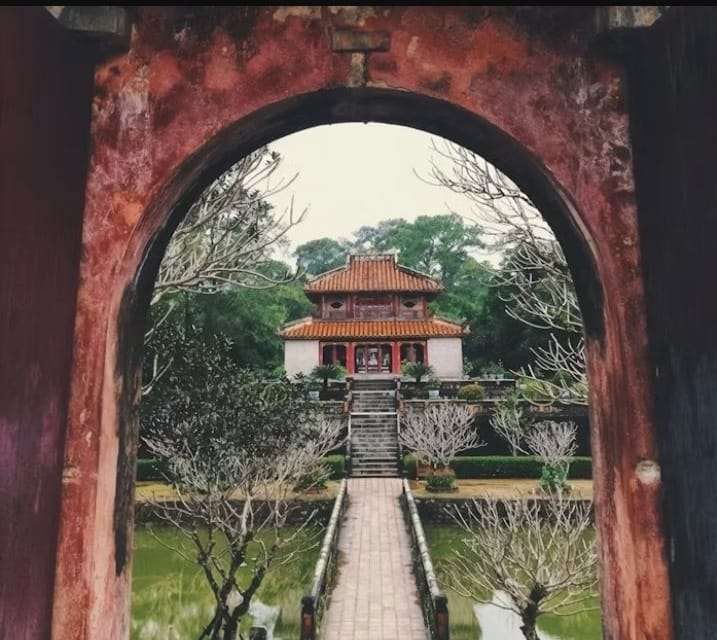
The Perfume River:
Flowing gracefully through the heart of Hue Vietnam is the Perfume River (Song Huong), adding a touch of serenity to the bustling city. The river, named for the fragrant flowers that fall into its waters from orchards upstream, is not just a scenic waterway but also a cultural symbol. A boat cruise along the Perfume River offers breathtaking views of the city’s landmarks, including the iconic Thien Mu Pagoda, a seven-story pagoda perched on a hill overlooking the river.
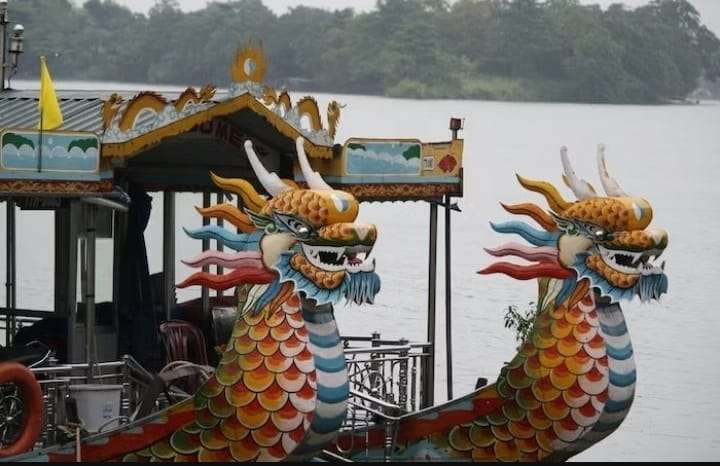
hue food:
Hue Vietnam is renowned for its distinctive culinary offerings, often considered a culinary paradise in Vietnam. The city’s cuisine is characterized by its imperial roots, with dishes meticulously prepared to satisfy the refined tastes of royalty. Must-try delicacies include Bun Bo Hue (spicy beef noodle soup), Com Hen (clam rice), and Banh Khoai (Hue crispy pancakes). The blend of flavors, textures, and unique ingredients in these dishes reflects the culinary sophistication of the region.
Cultural Festivals of hue vietnam
Hue Vietnam hosts several traditional festivals that provide a glimpse into the city’s vibrant cultural heritage. The Hue Festival, held every two years, is a grand celebration showcasing traditional music, dance, and art performances. The event attracts artists and performers from all over the world, creating a colorful spectacle that captivates both locals and visitors alike.
The Vibrant Hue Festival 2024 in Vietnam

The Hue Festival 2024 is a highly anticipated biennial event scheduled to take place from April 1st to April 6th, 2024, in the culturally rich city of Hue, located in central Vietnam. This festival serves as a grand celebration of the region’s history and heritage, offering a captivating display of traditional music, dance, and art performances that showcase the essence of Vietnamese culture.
Theme: The overarching theme for the Hue Festival 2024 is “Cultural Heritage with integration and development,” emphasizing the importance of preserving cultural traditions while embracing progress and growth.
Event Schedule: The festival will feature a diverse range of activities spread across the year, including a calendar book distribution ceremony on January 1st, 2024, leading up to the main festival dates in April. Additionally, a summer festival coinciding with the peak period of the Hue Festival will be held from April to June, offering an extended period of cultural festivities.
The Hue Festival 2024 promises to be a vibrant and immersive experience for both locals and visitors alike, providing a unique opportunity to witness the beauty and richness of Vietnamese heritage in a dynamic and engaging setting.
Modern Charms of hue vietnam
While deeply rooted in history, Hue has embraced modernity with open arms. The city’s streets are lined with lively markets, trendy cafes, and contemporary art galleries. The juxtaposition of ancient architecture and modern amenities creates a unique atmosphere where the past and present coexist.
some tourist places in Hue Vietnam
Hue, Vietnam, is a city steeped in history and culture, offering tourists a plethora of fascinating attractions to explore. Here are some must-visit tourist places in and around Hue:
Imperial City (Citadel):
The Imperial City is the heart of Hue’s historical significance. Enclosed by massive walls and a protective moat, it houses the former imperial palace, temples, and beautiful gardens. The intricate architecture reflects the grandeur of the Nguyen Dynasty.
Thien Mu Pagoda:
Perched on a hill overlooking the Perfume River, Thien Mu Pagoda is one of the oldest and most iconic pagodas in Vietnam. The seven-story tower, known as the Pagoda of the Celestial Lady, is a symbol of Hue.
Perfume River (Song Huong):
A boat cruise along the Perfume River offers a picturesque view of the city’s landmarks. The serene river is dotted with pagodas, tombs, and charming villages. Sunset cruises are top-rated.
Tomb of Khai Dinh:
This ornate tomb is a fusion of traditional Vietnamese and European architectural styles. The intricate mosaic artwork and the imposing statue of Khai Dinh make it a visually stunning site.
Tomb of Minh Mang:
Surrounded by lush gardens and tranquil lakes, the Tomb of Minh Mang is a testament to Vietnamese architectural mastery. The symmetry and harmony of the structures within the tomb complex are awe-inspiring.
Dong Ba Market:
A vibrant and bustling market, Dong Ba offers a sensory delight with its array of fresh produce, local handicrafts, and street food. It’s an excellent place to experience the local culture and try authentic Vietnamese dishes.
Hue Royal Antiquities Museum:
Located within the Imperial City, this museum houses a collection of artifacts from the Nguyen Dynasty, providing insights into the history and lifestyle of Vietnam’s royalty.
Hon Chen Temple:
Nestled on the banks of the Perfume River, this ancient temple is dedicated to the Goddess of the Cham people. It is a spiritual and serene place, accessible by boat.
Huyen Tran Princess Temple:
Situated in a picturesque setting surrounded by hills and forests, this temple is dedicated to Princess Huyen Tran, who played a crucial role in fostering cultural exchanges between Vietnam and other Southeast Asian countries.
A Dinh Palace:
This French colonial-era palace was the residence of Bao Dai, the last emperor of Vietnam. The palace showcases a blend of Vietnamese and European architectural influences.
traveling tips for hue vietnam
Traveling to Hue Vietnam can be a rewarding experience filled with cultural exploration and historical discovery. Here are some tips to enhance your trip to this vibrant city:
Best Time to Visit:
The months from February to April and September to November are considered the best times to visit, with milder temperatures and lower chances of rain.
Clothing:
Dress modestly when visiting religious sites like temples and pagodas. Try to wear a dress that covers your shoulders and knees.
Comfortable Footwear:
Wear comfortable shoes, especially if you plan to explore historical sites like the Imperial City, which involves a fair amount of walking.
Local Currency:
The official currency is the Vietnamese Dong (VND). While credit cards are accepted in some places, it’s advisable to carry some cash, especially when exploring local markets.
Language of hue Vietnam
While English is spoken in tourist areas, learning a few basic Vietnamese phrases can go a long way in connecting with locals and enhancing your experience.
Transportation:
Explore the city by cyclo (a three-wheeled bicycle taxi) or rent a motorbike for a more immersive experience. Taxis are also available.
Bargaining:
Bargaining is common in markets, so don’t hesitate to negotiate prices, especially when shopping for souvenirs at places like Dong Ba Market.
Street Food Caution:
Hue is renowned for its delicious street food. Try local specialties, but be cautious about street food hygiene. Opt for stalls with a high turnover of customers to ensure freshness.
Weather Precautions:
Vietnam can experience heavy rains during the monsoon season. Be prepared with rain gear and check the weather forecast before planning outdoor activities.
Respect Local Customs:
Vietnamese people are generally polite and respectful. Return the courtesy by greeting people with a smile and a nod. Remove your shoes when entering someone’s home or certain religious sites.
Tours and Guides:
Consider hiring a local guide or joining organized tours to get in-depth insights into the history and culture of Hue. Guides can enhance your understanding of the significance of various landmarks.
Health Precautions:
It’s advisable to carry a basic first aid kit, including any necessary medications.
Explore Beyond the Imperial City:
While the Imperial City is a must-visit, don’t miss the chance to explore the surrounding countryside, visit local villages, and experience the daily life of the people.
Photography Etiquette:
Always ask for permission before taking photographs of local people, especially in rural areas.
By keeping these tips in mind, you can make the most of your trip to Hue and immerse yourself in the rich cultural tapestry that this historic city has to offer.
Conclusion:
Hue, with its imperial splendor, picturesque landscapes, and delectable cuisine, is a destination that offers a diverse and enriching experience for travelers. Whether exploring the historical landmarks, savoring the local flavors, or immersing oneself in the cultural festivities, a visit to Hue promises a journey through time and a deep appreciation for the beauty of Vietnam’s central region.
FAQs for Traveling to Hue Vietnam
Expense:
Q: What is the expected daily expense for a traveler in Hue Vietnam?
A: On average, a mid-range budget for a traveler in Hue is around $30 to $50 per day, including accommodation, meals, local transportation, and entrance fees.
Q: Are credit cards widely accepted in Hue?
A: While credit cards are accepted in some establishments, it’s advisable to carry cash for smaller vendors and local markets. The currency of Hue Vietnam is the Vietnamese Dong (VND) currency.
Q: Are there ATMs available in Hue Vietnam?
A: Yes, ATMs are widely available in Hue, especially in the city center. It’s better to carry some cash.
Safety:
Q: Is Hue a safe destination for travelers?
A: Yes, Hue is generally considered safe for tourists. Take care of your belongings on any travel.
Q: Are there any health precautions to take in Hue?
A: Drink bottled or boiled water, and be cautious with street food to avoid foodborne illnesses. You should have medical insurance in case of an emergency.
Q: What about traffic safety in Hue?
A: Traffic can be chaotic, especially in the city center. Exercise caution when crossing streets and consider using marked crosswalks. If renting a motorbike, ensure you have the necessary skills and wear a helmet.
Stay:
Q: What types of accommodations are available in Hue?
A: Hue offers a range of accommodations, including budget hostels, guesthouses, boutique hotels, and luxury resorts. The city center and along the Perfume River are popular areas to stay.
Q: Is it ok to book hotels or accommodations in advance?
A: During peak tourist seasons, it’s advisable to book accommodations in advance. However, outside of major holidays, you may find options upon arrival.
Q: Are there homestay options in and around Hue?
A: Yes, there are homestay options in rural areas surrounding Hue, offering a unique opportunity to experience local culture and hospitality.
Weather:
Q: What is the best time to visit Hue in terms of weather?
A: The months from February to April and September to November generally offer mild temperatures and lower chances of rain, making them ideal for travel.
Q: Does Hue experience a monsoon season?
A: Yes, the monsoon season typically occurs from September to January, with the highest rainfall in October and November. Travelers should be prepared for occasional heavy rains during this period.
Food:
Q: What are some must-try local dishes in Hue?
A: Hue is known for its unique cuisine. Don’t miss trying Bun Bo Hue (spicy beef noodle soup), Com Hen (clam rice), and Banh Khoai (Hue crispy pancakes).
Q: Is street food safe to eat in Hue?
A: Street food is a highlight in Hue, and many vendors maintain high hygiene standards. Choose busy stalls, and if you have concerns, opt for restaurants with good reviews.
Q: Are vegetarian or vegan food options available in Hue?
A: Yes, Hue has a variety of vegetarian and vegan options, influenced by the city’s Buddhist heritage. Look for local vegetarian restaurants and stalls.
These FAQs aim to provide essential information for travelers planning a visit to Hue, Vietnam, covering aspects of expenses, safety, accommodation, weather, and local cuisine.
Hue’s tourist attractions offer a captivating journey through Vietnam’s rich history and provide a deep appreciation for the country’s cultural heritage.
I’m originally from Manchester (England) but I currently live in New York. I started this travel blog all the way back in 2009 to provide travel advice that wasn’t available in the guidebooks.
Since then I’ve traveled to over 60 countries, a lot of the time, solo. My site is filled with destination guides, things to do, epic itineraries and money-saving travel tips. I hope I can inspire you to see the world!

